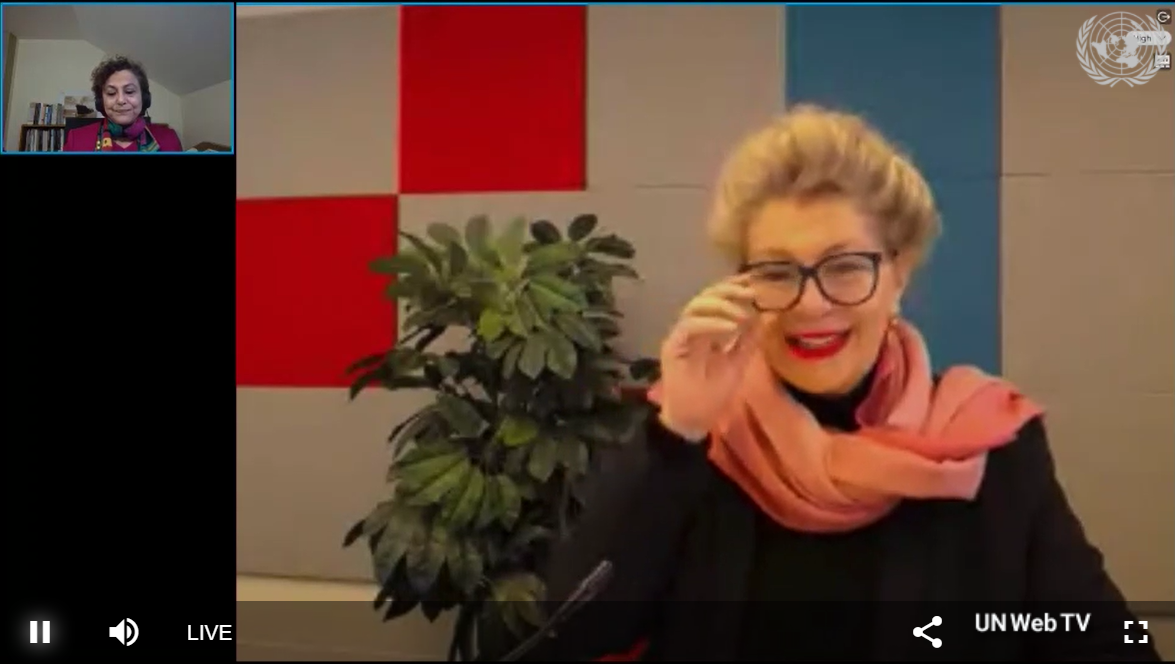Irene Khan, the new Special Rapporteur on the promotion and protection of freedom of opinion and expression, and the first woman to hold the mandate, kicked off her first dialogue with the UN’s Third Committee referencing the murder of French teacher Samuel Paty. According to Khan, his murder showed the ´risk that academics face when seeking to push boundaries of discussion and thought.’
Academic freedom and threats against it were the focus of the report of the prior Special Rapporteur, David Kaye, which Khan presented to the Committee.
The report outlines that there is no single, exclusive international human rights framework covering academic freedom but that a range of rights are key to its realisation, central of which is the freedom of opinion and expression.
The Special Rapporteur pointed to the reasons why academic freedom is a key building block of democratic States and why it must be safeguarded.
‘When academic freedom is attacked, society loses capacity for reflection, self-improvement and progress’, she noted.
States are under a positive obligation to create a general enabling environment for seeking, receiving and imparting information and ideas. The report provides evidence that in many countries this is not happening, detailing cases of attacks on academics and academic institutions, including in Venezuela.
David Gómez Gamboa, director of Venezuelan NGO ‘Aula Abierta Latinoamerica’, who provided information to David Kaye in the preparation of this report, told ISHR of the severe risks to academic freedom in parts of Latin America.
‘Authoritarian regimes consider universities and academics that are critical (of States) as targets for attacks, reprisals and discrimination, as they do with critical journalists or human rights defenders’, he noted.
For Gómez Gamboa the report is very welcome, addressing as it does an issue that had received scant attention. He noted that this should mark the start of heightened interest in academic freedom and called for strategic litigation to focus attention on individual cases.
In addition to setting out the report on academic freedom and fielding questions during her dialogue with the Committee, Khan outlined four principle priorities for her new mandate:
- Connections between sustainable development and freedom of expression.
- Media freedom and the safety of journalists.
- Bringing a feminist interpretation to the enjoyment of the right to freedom of expression, including an exploration of the widening gap in internet use between genders, and stigmatisation and abuse suffered by women online.
- Digital technology, building on work already done on key issues including hate speech, and surveillance technologies.
The interventions by States were largely supportive, which is generally to be expected during the first dialogue with a new Special Rapporteur.
Contact: Eleanor Openshaw, [email protected]
Photo: Screenshot of UNWebTV




